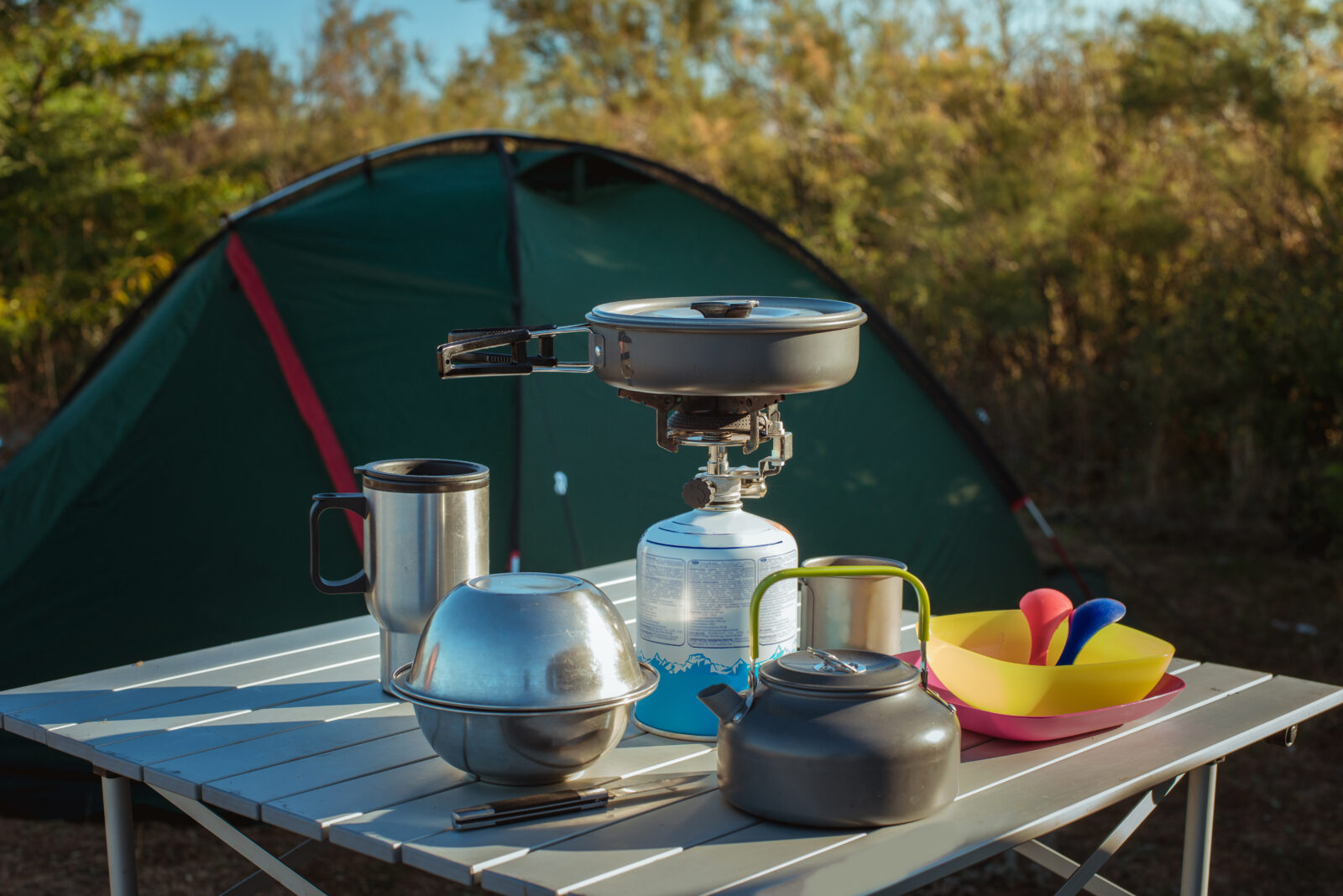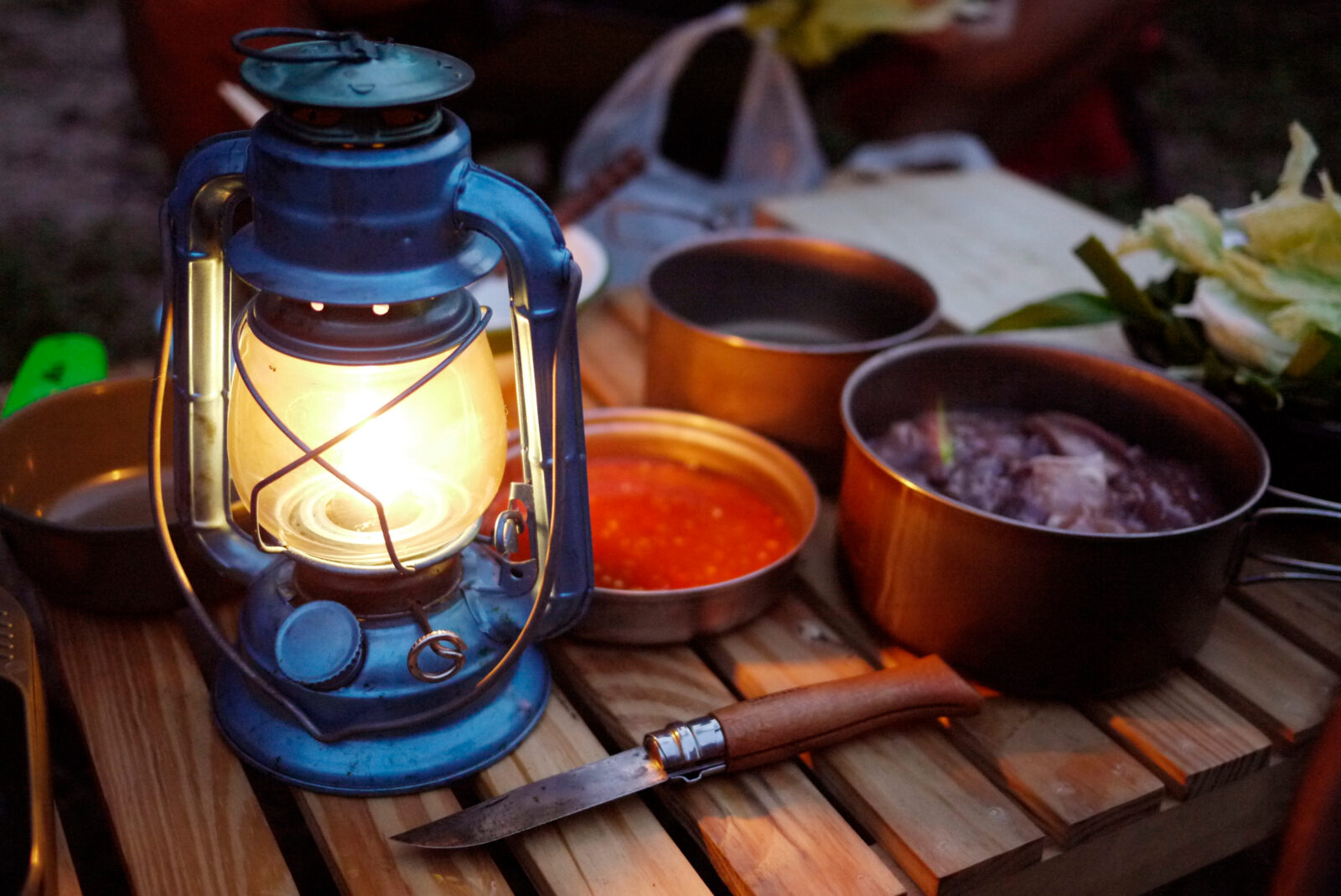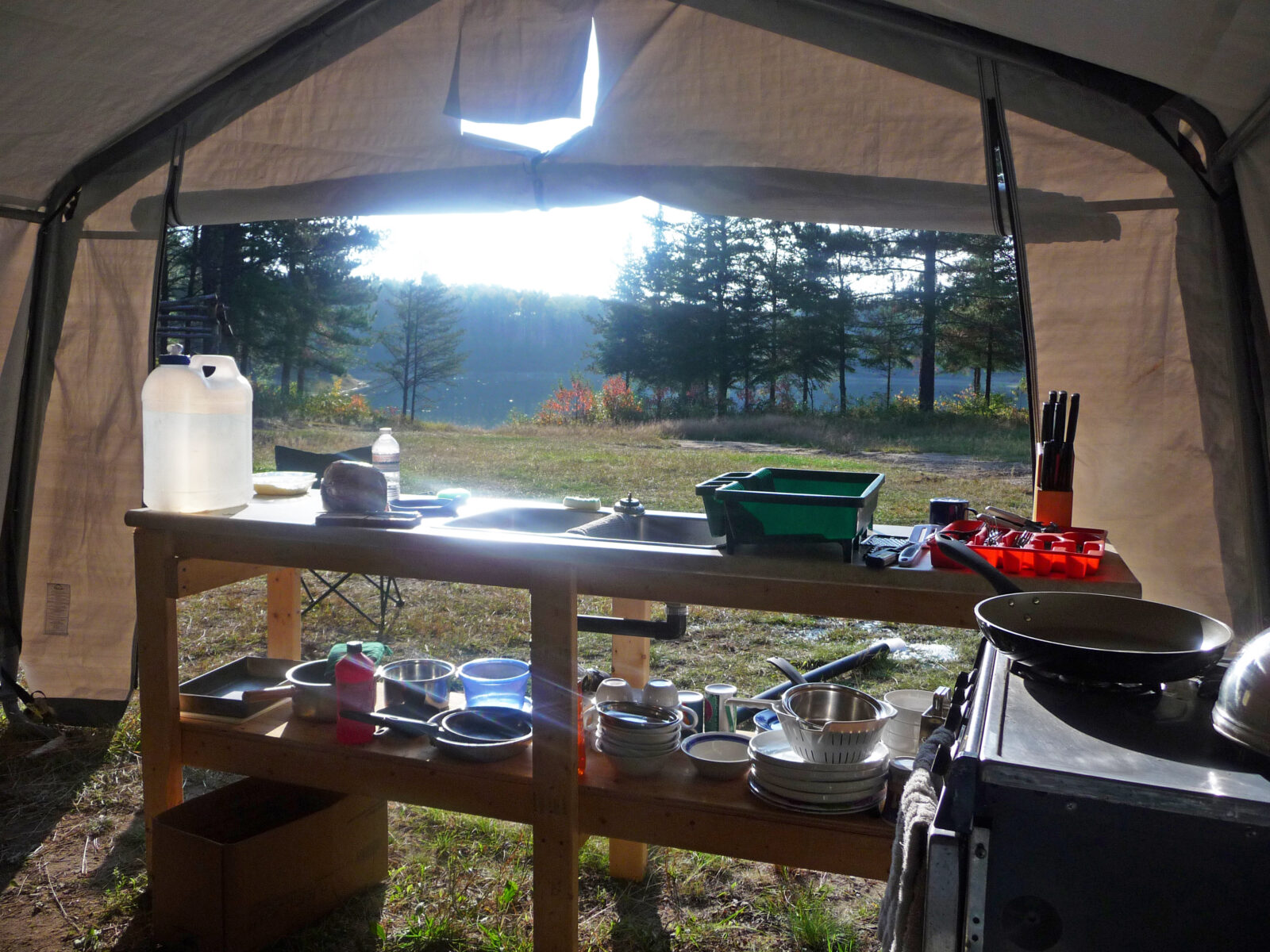Wondering how you can be a responsible camper but not sure where to start?
We’ve got you covered.
Being a kind, respectful camper starts and ends with knowing the rules and regulations of your camping area. However, there are also plenty of unspoken rules of camping etiquette that everyone heading into the woods ought to know.
If you’re feeling a bit lost when it comes to understanding the basics of camping etiquette, we’re here to help you out. In this article, we’ll walk you through the 11 most important campsite etiquettes that everyone should be aware of when enjoying time in the great outdoors.
1. Keep a clean campsite
Keeping a clean campsite is an integral part of Leave No Trace but it’s also an essential aspect of being a considerate camper.
In particular, ensuring that you keep your campsite free of garbage and food scraps is of the utmost importance. Since food and garbage that’s left out overnight in one campsite can attract woodland critters to all of the sites in a campground, keeping a clean site is vital for the entire camping community.
Furthermore, the idea of leaving something better than you found it also applies to the camping world. While it might be easier to say “I didn’t make this mess so why should I clean it up?,” taking the time to throw away trash in your campsite can help ensure that we keep the outdoors as clean and pristine as possible for years to come.
2. Respect the campground quiet hours
Whether you’re camping in Yellowstone or Yosemite, chances are pretty high that your campground has designated quiet hours.
For the most part, campgrounds tend to have posted quiet hours that range from about 10 pm to 6 pm in order to ensure that everyone has a quiet place to sleep for the night. Therefore, respecting these quiet hours is a must if you want to be a considerate camper.
Respecting quiet hours normally means that you shouldn’t play instruments around the campfire until the wee hours of the morning and that you should avoid chatting loudly in your Kelty tent all night.
Of course, a small amount of chatter and noise usually isn’t a problem. But keeping your voice to a minimum during quiet hours is a great way to make sure that everyone around you also has a superb camping experience.
3. Check-in and check-out on time
Just like hotels, most campgrounds have designated check-in and check-out times. These check-in and check-out times are designed to ensure that your campsite will be ready to go upon your arrival, however, this system only works if everyone follows the rules.
Indeed, checking out late from your campsite can cause problems for the next people staying at that site. While it might not seem like a big deal to sleep in on your last day in camp, doing so could mean that you’re still packing up your tent when the next group arrives for their adventure.
At the same time, while arriving a few hours late to check-in at your campsite isn’t normally a problem, showing up in the dead of night isn’t ideal. That’s because showing up at your campsite in the middle of the night can disturb others who are trying to catch some Zzs after a long day of adventure.
Moral of the story?
Respect your campground’s check-in and check-out times. Your fellow campers will appreciate it.
4. Pick up after your pup
Going camping with your pup in places like the Adirondacks can be a fantastic experience. But, camping with dogs also comes with added responsibility if you want to be a considerate camper.
In particular, picking up after your dog and packing out your pup’s waste is essential during your adventures. That’s because, just like with human waste, dog waste can spread diseases.
Furthermore, dog poop scattered around a campground is unsightly, to say the least, so cleaning up your dog’s droppings is critical for the entire camping community. Many campgrounds will even have strict rules about picking up after your pets, so be sure to follow them when you’re out and about.
5. Put out your fire before going to bed
A roaring campfire is always a highlight of any camping adventure. However, anyone that wants to have a campfire needs to be prepared to do so responsibly.
Part of responsible campfire management involves putting out your fire completely before you go to bed. Dousing your fire with water to ensure that it’s out before leaving it unattended is a vital part of public safety, too, as unattended fires can lead to massive wildfires.
So, before you go to bed, take a few minutes to put out your fire. Your camping neighbors and the community at large will appreciate your responsible campfire habits.
6. Keep your dog on a leash
If you’re camping with your dog, you may be tempted to let them run around your campsite off-leash. But, you really shouldn’t allow your dog to wander around without human supervision.
In fact, even if your dog is super well-behaved, keeping them on a leash while in crowded campgrounds at places like Grand Canyon National Park is critical. That’s because unleashed dogs can terrorize local wildlife, which isn’t exactly ideal.
Therefore, it’s important to keep your pup on a leash instead of letting them run amok while you’re hanging out in your camping chairs around the campfire.
7. Be considerate in first-come, first-served campsites
In some popular parks, like Joshua Tree and Death Valley, many campgrounds are available on a first-come, first-served basis.
These first-come, first-served sites are awesome if you didn’t have time to make a reservation ahead of your trip. However, the success of these campsites requires that we all respect each other in the process.
The key point here is that you shouldn’t steal a campsite that someone else has already claimed. While we understand the stress of trying to find a site in a popular park, stealing a site from others is never a good plan of action.
If you’re struggling to find a campsite for the night, talk to the campground host or the park rangers. They may be able to direct you to other campgrounds or to dispersed camping opportunities in the region.
Read More :
8. Respect your neighbor’s privacy
The lack of walls at your local campground might give some folks the idea that privacy just isn’t possible while camping. Nevertheless, it is possible to give everyone the privacy they need, even while at a popular campground.
The key to ensuring privacy at a campground is to respect everyone’s personal space. This mostly comes down to staying out of other people’s campsites, even if it does seem easier to pass through your neighbor’s site on the way to the bathroom.
Furthermore, it’s best to keep your camping gear, like your camp tables and kitchens within the perimeter of your site. Encroaching on someone else’s campsite is considered rude, so sticking to your designated area is an all-around best practice.
9. Don’t do your dishes in the bathroom sink
Washing dishes is often a challenge for campers since you likely won’t have access to a large sink like you would at home.
However, while it might seem tempting to wash your cookware and mess kits in the bathroom sink, we can assure you that this is no way to make friends at the campground.
In addition to being messy, washing your dishes in the bathroom sink does mean that you’ve commandeered a valuable shared resource. So, if you want to wash your dishes, consider bringing a pot of water over to your campsite, instead, for washing up after each meal.
10. Keep lights at a minimum
Staring up at the stars and the stunning night sky is a time-honored camping tradition. Unfortunately, the light from our lanterns, headlamps, and string lights can all negatively affect our ability to stargaze while camping.
While you’ll certainly need to have some lighting fixtures in your campground each night, being mindful of how much light you’re producing is important. Since you don’t want to negatively impact your neighbor’s stargazing experience, keeping artificial lighting to a minimum is a great way to be a considerate camper.
11. Be friendly
Finally, don’t forget to be friendly while you’re camping. Although it’s easy to get wrapped up in your own camping experience, it’s important to remember that campgrounds are shared spaces.
So, taking the time to say hello to your fellow campers when they walk by is always appreciated. It’s also worth being kind and considerate to the campground host – even if they’ve come to your campground to give you a warning about breaking a campground rule.
Ultimately, a little bit of kindness can go a long way, even in the great outdoors.
Gaby Pilson
Gaby is a professional mountain guide with a master’s degree in outdoor education. She works primarily in the polar regions as an expedition guide, though she can be found hiking, climbing, skiing, sailing, or paddling in some of the world’s most amazing places when not at work.


